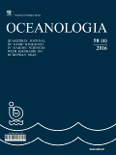
OCEANOLOGIA
Scope & Guideline
Transforming Ocean Knowledge into Action
Introduction
Aims and Scopes
- Marine Ecosystem Dynamics:
Research on the dynamics of marine ecosystems, including the study of phytoplankton, zooplankton, and benthic communities, their interactions, and their responses to environmental changes. - Climate Change Impacts:
Investigations into how climate change affects marine environments, including temperature changes, sea-level rise, and shifts in species distributions and community structures. - Coastal Processes and Erosion:
Studies focusing on coastal dynamics, including erosion, sediment transport, and the impacts of human activities on coastal ecosystems. - Pollution and Contaminant Studies:
Research addressing the sources, distribution, and effects of pollutants in marine environments, including microplastics, heavy metals, and nutrient loading. - Technological Applications in Marine Research:
Utilization of advanced technologies such as remote sensing, machine learning, and numerical modeling to study marine phenomena and improve environmental monitoring. - Marine Biodiversity and Conservation:
Focus on marine biodiversity assessments, conservation strategies, and the impacts of anthropogenic activities on marine habitats.
Trending and Emerging
- Deep Learning and AI in Marine Research:
The increasing application of deep learning and artificial intelligence for analyzing underwater imagery and modeling marine processes is a notable trend, reflecting the broader technological advancements in data analysis. - Climate Change Adaptation Strategies:
Emerging studies focus on adaptive strategies for marine ecosystems in response to climate change, emphasizing resilience and sustainability in marine resource management. - Holistic Approaches to Marine Conservation:
There is a growing emphasis on integrative research that combines ecological, social, and economic perspectives in marine conservation efforts, highlighting the interconnectedness of marine systems and human impact. - Microplastic Pollution and Its Effects:
Research on microplastic pollution is increasingly prevalent, focusing on its sources, distribution, and impacts on marine life and ecosystems, aligning with global environmental concerns. - Benthic Habitat Characterization:
Studies characterizing benthic habitats using advanced methodologies are on the rise, indicating a growing recognition of their importance in marine ecosystems and biodiversity.
Declining or Waning
- Traditional Fisheries Studies:
Research focused on traditional fisheries management and assessments has seen a decline, possibly due to a shift towards more integrative approaches that consider ecosystem dynamics rather than solely fish populations. - Sedimentology of Specific Regions:
While sedimentological studies are still relevant, there has been a noticeable decrease in research concentrating on specific sedimentary environments, as broader ecological and biogeochemical studies gain traction. - Static Habitat Studies:
Research that examines habitats in isolation without considering dynamic environmental factors or interactions among species is becoming less common, as integrative and dynamic research models are favored.
Similar Journals

Journal of Operational Oceanography
Bridging Science and Practice in Marine ResearchThe Journal of Operational Oceanography, published by Taylor & Francis Ltd, stands as a pivotal platform within the field of oceanography, focusing on the integration of operational practices, technology, and scientific research. With a strong impact factor and a notable Q2 quartile ranking in the category of Earth and Planetary Sciences, this journal offers researchers, professionals, and students a vital resource for disseminating new knowledge and innovative methodologies related to ocean studies. Covering a range of topics from marine data analysis to the application of oceanographic principles in sustainable practices, the journal’s content is crucial for advancing understanding in this dynamic field. Operating since 2008 and continuing through 2024, it is dedicated to fostering collaboration and dialogue among the scientific community, ensuring accessibility to essential findings that drive informed decision-making in marine science. With its commitment to high-quality, peer-reviewed articles and a ranking in the top 10th percentile of its category, the Journal of Operational Oceanography is an indispensable resource for those looking to make significant contributions to marine research.

OCEANOLOGY
Illuminating the Mysteries of the OceanOCEANOLOGY is a distinguished journal published by Pleiades Publishing Inc that has been a pivotal platform for advancing knowledge in the field of oceanography since its inception. With an ISSN of 0001-4370 and E-ISSN 1531-8508, this journal covers a range of topics related to marine sciences, geographical oceanography, and environmental studies, providing insights and research that significantly contribute to our understanding of oceanic systems. Recognized for its academic rigor, OCEANOLOGY holds a Q3 quartile ranking in the Oceanography category as of 2023, reflecting its impact within the scientific community as evidenced by its Scopus rank of 85 out of 145. Although currently not an open-access journal, OCEANOLOGY remains essential for researchers, professionals, and students by offering a comprehensive collection of peer-reviewed articles. This multidisciplinary approach equips its audience with valuable data and perspectives critical for ongoing research and development in ocean-related fields.
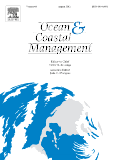
OCEAN & COASTAL MANAGEMENT
Navigating the Future of Coastal SustainabilityOCEAN & COASTAL MANAGEMENT is a premier journal dedicated to the multifaceted fields of oceanography, aquatic science, and coastal management. Published by ELSEVIER SCI LTD and located in the United Kingdom, this esteemed journal boasts a remarkable Q1 ranking in prestigious categories, including Aquatic Science and Oceanography, reflecting its influential contributions to the field since its inception in 1992. The journal is recognized for its high impact, boasting a commendable presence in Scopus rankings across related disciplines, with notable placements in the 94th percentile for Aquatic Science and 92nd percentile for Oceanography. Although it operates under a subscription model, OCEAN & COASTAL MANAGEMENT continues to serve as a vital resource for researchers, professionals, and students seeking to advance their understanding of coastal ecosystems and effective management strategies. Through rigorous peer-reviewed research, the journal aims to foster knowledge exchange and practical applications in policy-making and environmental stewardship, making it an essential read for anyone engaged in the preservation and sustainable use of oceanic resources.

Jurnal Ilmu dan Teknologi Kelautan Tropis
Transforming marine research into actionable knowledge.Jurnal Ilmu dan Teknologi Kelautan Tropis (ISSN: 2087-9423, E-ISSN: 2085-6695) is a premier scientific journal published by the Indonesian Oceanologists Association in collaboration with the Bogor Agricultural University, specifically from the Department of Marine Science and Technology. This journal is committed to advancing the field of tropical marine science, publishing high-quality research that addresses pressing issues in oceanography, marine ecosystems, and sustainable practices in tropical regions. By facilitating open access to valuable scientific knowledge, Jurnal Ilmu dan Teknologi Kelautan Tropis aims to engage researchers, professionals, and students alike, fostering collaboration and innovation in marine research. Located in the picturesque region of Bogor, West Java, Indonesia, this journal serves as a vital platform for disseminating findings that contribute to the conservation and effective management of tropical marine resources.

Ocean and Coastal Research
Navigating the challenges of marine resource management.Ocean and Coastal Research, published by the Institute Oceanográfico of the University of São Paulo, is an essential academic journal dedicated to advancing the fields of Aquatic Science, Oceanography, and Water Science and Technology. Established in 2020, the journal has quickly become a noteworthy platform contributing to the understanding and sustainable management of marine and coastal ecosystems, with an open access model that promotes the dissemination of critical research findings. Although currently categorized in the fourth quartile across its respective fields in 2023, the journal serves as an emerging repository of valuable insights for researchers, professionals, and students alike, aiming to make impactful discoveries that address contemporary challenges in ocean conservation and resource management. The journal's editorial team is committed to fostering interdisciplinary collaboration and upholding rigorous peer-review standards, thereby ensuring high-quality contributions that reflect the dynamic nature of marine science. With an E-ISSN of 2675-2824, all access to published articles is freely available, supporting global research efforts addressing crucial environmental issues.
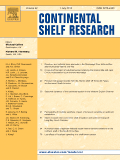
CONTINENTAL SHELF RESEARCH
Shaping the Future of Oceanographic ResearchCONTINENTAL SHELF RESEARCH, published by PERGAMON-ELSEVIER SCIENCE LTD, is an esteemed journal within the fields of Aquatic Science, Geology, and Oceanography, reflecting a compelling intersection of these disciplines. Since its inception in 1982, this journal has served as a premier platform for disseminating cutting-edge research relevant to the continental shelf ecosystem, including its geological features, biological resources, and physical processes. With a Category Quartile ranking of Q1 in Aquatic Science and prominent Q2 standings in Geology and Oceanography, it is recognized for its rigorous peer-review standards and impactful contributions, evidenced by its respective rankings in Scopus. Researchers and professionals are encouraged to engage with the journal's array of high-quality articles that not only enhance scientific understanding but also inform policy and conservation efforts. This dedication to advancing knowledge makes CONTINENTAL SHELF RESEARCH an essential resource for those passionate about marine and coastal studies in the United Kingdom and globally.
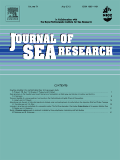
JOURNAL OF SEA RESEARCH
Empowering Researchers to Shape Marine UnderstandingJOURNAL OF SEA RESEARCH, published by Elsevier, is a premier academic journal dedicated to advancing knowledge in the fields of aquatic science, ecology, and oceanography. Since its inception in 1996, this journal has provided a vital platform for researchers and professionals to disseminate groundbreaking findings and promote fostering interdisciplinary discussions. With its impressive Q2 ranking in multiple categories, including Aquatic Science and Ecology, Evolution, Behavior and Systematics, it positions itself as a significant contributor to marine and environmental studies. The journal is accessible in both print (ISSN: 1385-1101) and online formats (E-ISSN: 1873-1414), ensuring wide reach and engagement within the scholarly community. Researchers and students alike will find the journal not only a reliable source of information but also a source of inspiration for future explorations. With a commitment to quality and a broad scope that spans fundamental to applied research, JOURNAL OF SEA RESEARCH remains an indispensable resource for understanding the complexities of marine environments and their relevance to our changing world.

Indian Journal of Geo-Marine Sciences
Advancing Research in Oceanic and Geological FrontiersThe Indian Journal of Geo-Marine Sciences, published by the NATIONAL INSTITUTE OF SCIENCE COMMUNICATION & INFORMATICS (NISCAIR), serves as a vital platform dedicated to the dissemination and advancement of knowledge in the field of marine and geosciences. As an open-access journal, it allows for improved visibility and accessibility of research findings to a global audience, enabling researchers, professionals, and students to share insights into oceanography and related disciplines. With a publication history spanning from 2007 to 2010 and continuing from 2012 to 2024, it has established itself within the academic community as a reliable source of innovative research, despite being classified in Q4 of Oceanography and holding a Scopus rank that places it in the 27th percentile. This journal is particularly relevant for those investigating marine ecosystems, geological oceanography, and their interconnections, thus playing an essential role in fostering understanding and communication within this important area of scientific inquiry.

Oceans-Switzerland
Bridging Disciplines for a Sustainable FutureOceans-Switzerland, published by MDPI, is an esteemed open-access journal established in 2020, with a focus on providing a platform for the dissemination of high-quality research in the fields of Environmental Science and Oceanography. Based in the picturesque city of Basel, Switzerland, the journal seeks to foster a deeper understanding of oceanic processes and their implications for the environment through rigorous peer-reviewed articles. With an impact factor reflected in its 2023 Scopus rankings, placing it in the 56th percentile across its categories, Oceans-Switzerland continues to promote interdisciplinary collaboration and innovation, targeting a wide audience of researchers, professionals, and students keen on exploring the complexities of ocean systems. The journal's commitment to open-access policy ensures that groundbreaking research is available to a global audience, reinforcing its crucial role in advancing knowledge and shaping practices within the scientific community.
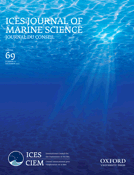
ICES JOURNAL OF MARINE SCIENCE
Advancing Aquatic Science for a Sustainable FutureThe ICES Journal of Marine Science, published by Oxford University Press, stands at the forefront of marine research, offering cutting-edge insights into aquatic sciences and oceanography since its inception in 1903. With its ISSN 1054-3139 and E-ISSN 1095-9289, this esteemed journal has garnered a reputation for excellence, evidenced by its Q1 rankings in categories such as Aquatic Science, Ecology, and Oceanography as of 2023. The journal's commitment to advancing knowledge in marine systems makes it an essential resource for researchers, professionals, and students alike, who are keen to explore the intricate ecosystems that sustain our planet. Without an open access model, the journal maintains a rigorous editorial standard and is recognized among the top journals, ranking impressively in various Scopus categories. Authored contributions reflect pioneering research that informs policy and fosters sustainable practices, making this journal a critical platform for disseminating marine science knowledge.